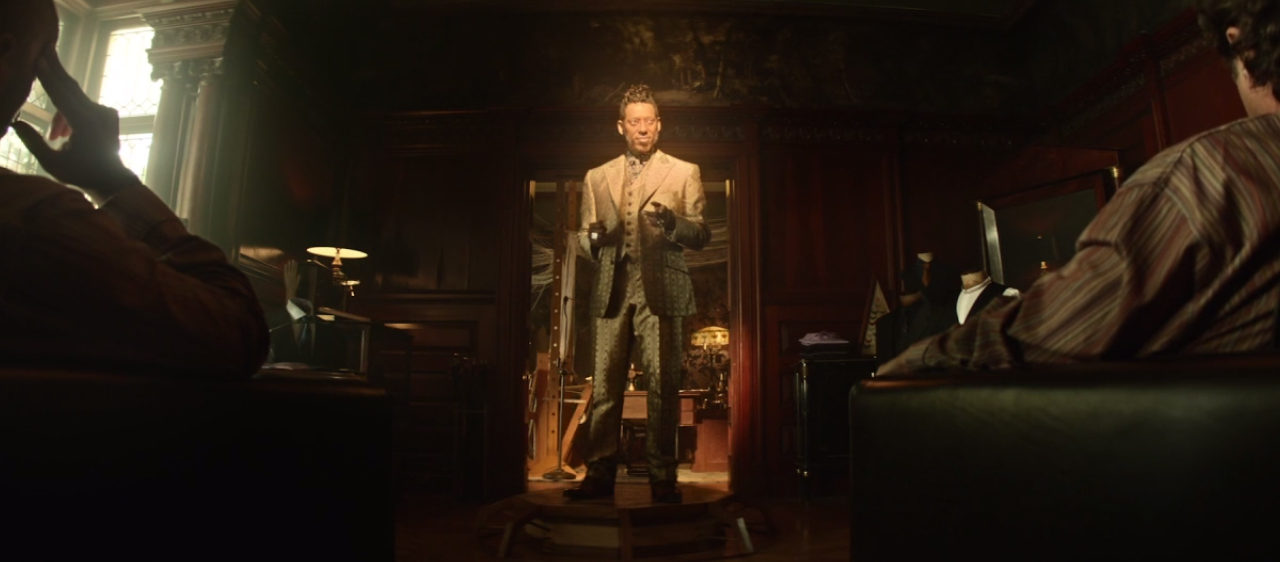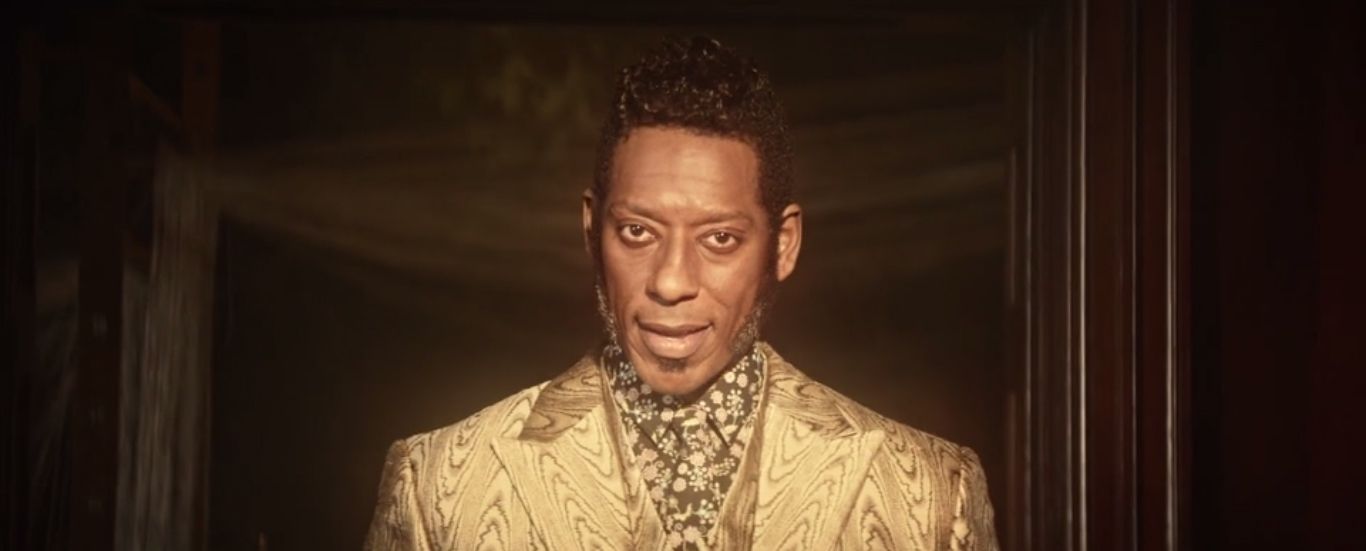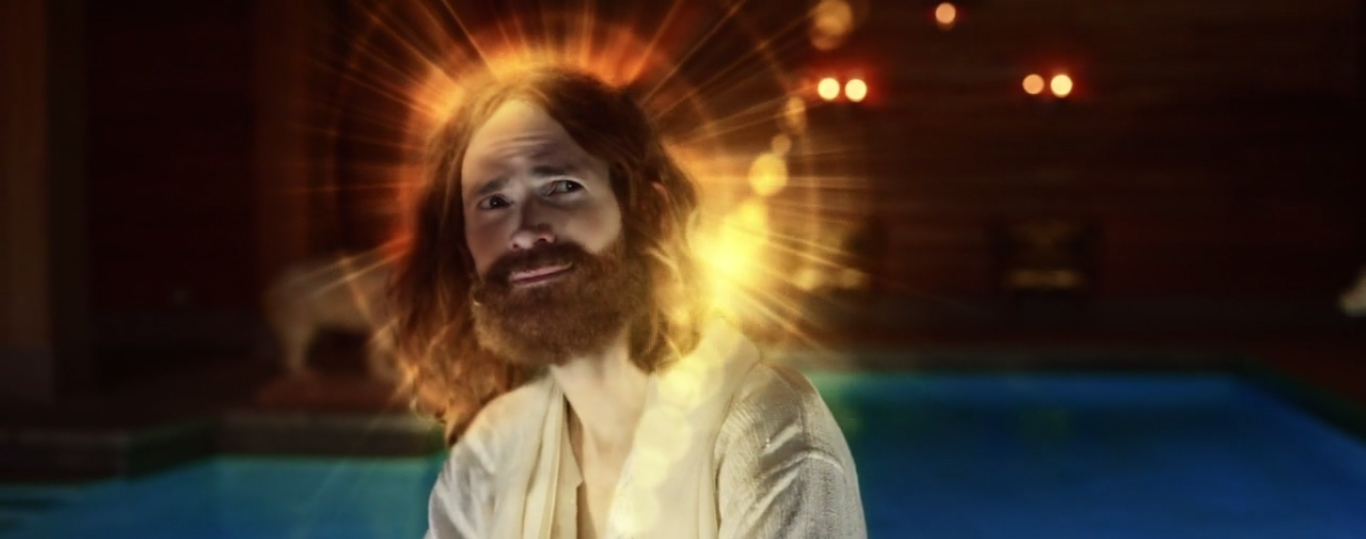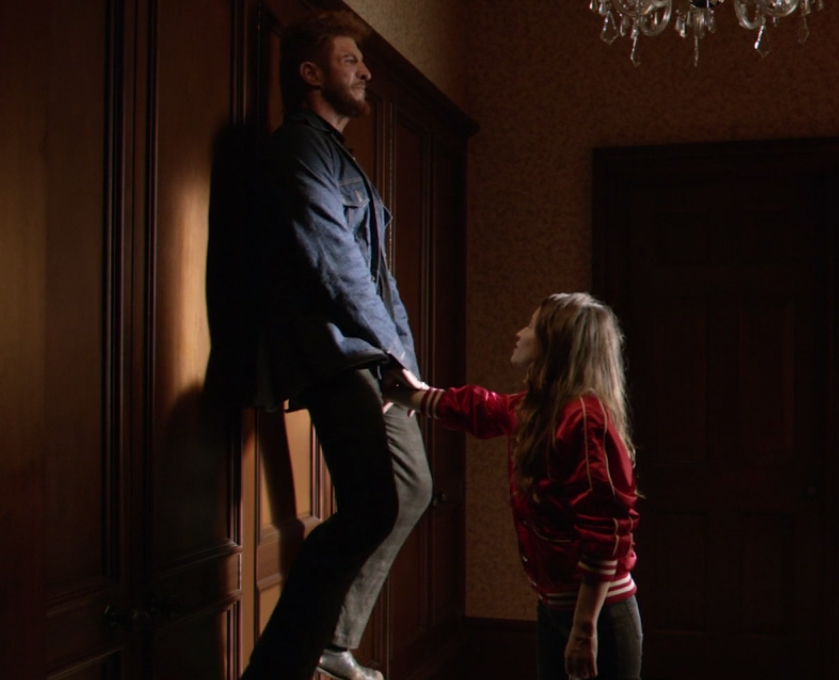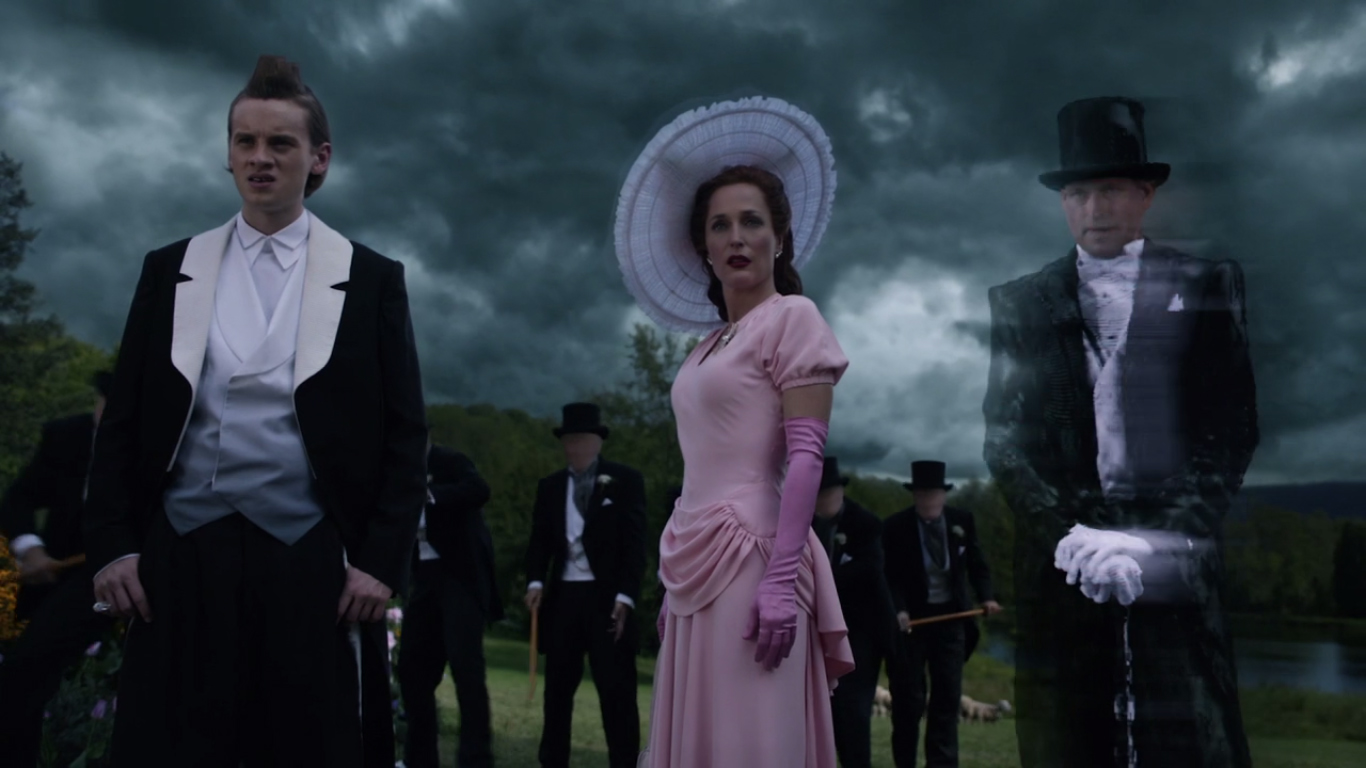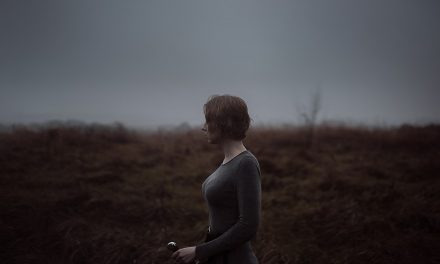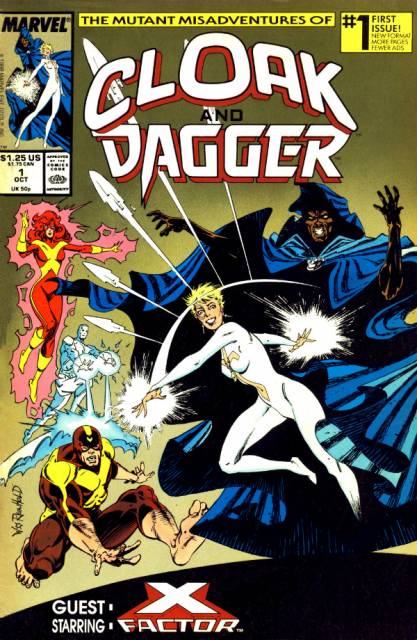American Gods Season 1 Finale: In Advance
There are episode spoilers in this review. This review will also contain book spoilers, but only up to where the show has covered, as I compare the two side-by-side. All images are from American Gods on STARZ unless otherwise noted.
Previous episode reviews can be found here: Episode 1, Episode 2, Episode 3, Episode 4, Episode 5, Episode 6, Episode 7
CW: Sexual assault
Footnotes
Footnotes will return next season! This episode has too much to unpack to focus on anything but content.
Manipulations
“Come to Jesus” sustained a lot of major manipulations from the initial version of American Gods. Some are further branches of other previously mentioned manipulations, some are entirely new. Here is what transpired on TV but not in the pages:
Major
Anansi
- Maintaining a higher level of anger than ever seen in Anansi before. This rage, however, makes him an enviable storyteller, which he definitely has always been.
- No connection, even as a storyteller, to Bilquis. The two were never associated in the book. However, it also doesn’t seem unreasonable that Anansi would have knowledge of Bilquis or her tale, given the gods’ functionality thus far.
- Not a tailor, but IIRC, a fan of wearing tailored suits. And lemon yellow gloves, but quite regrettably, we don’t get those in the new rendition of American Gods.
Bilquis
- No connection to Anansi, as mentioned in Anansi, point 2.
- No connection to Tech Boy as a savior. On page, they do at some point connect, but as that connection may still transpire, I won’t elaborate.
Shadow
- Still much livelier. Mostly, he is being depicted as angrier, more questioning, and more complicated. Novel Shadow presented as more of a shell-shocked, blank slate.
Ostara
- Ostara was Eostre of the Dawn in Neil’s writing. Not only that, Shadow and Wednesday found Easter (again, Eostre) in Cali (not Kentucky) and found her at an overflowing picnic. The three then traversed to a coffee shop and had many of the same conversations, except, obviously, those regarding Vulcan, as he is completely new.
- No Christian narrative existed, especially as an extensive overlay with Ostara’s success. It was briefly mentioned that Christians have overrun her holiday, but the storyline of Media (of the New Gods) having made a deal to keep Ostara flourishing by utilizing Jesus is a recent but brilliant and believable divergence.
- She doesn’t meet with Sweeney and Laura at any point. This “modern” development plays on the extension of storylines we’ve been seeing particularly in the past few episodes.
- She doesn’t “rescind” her season. There’s never a strategic power play to encourage more prayer by Ostara “ungrowing” plants and the spring season.
Jesus
- Not in the written American Gods. Thus, all interactions in the STARZ representation are different.
Laura
- Doesn’t ever find out that she was killed by a god. Although the on-screen threatening to pop Sweeney’s testicles “like peas” to obtain this information was, admittedly, worthy of cherishing.
- Isn’t ever really labeled a “sacrifice,” her death is just means to the ends that is Shadow’s commitment.
- Not involved with Eostre/Ostara in any capacity. See Ostara, point 3 for more info.
Wednesday
- No Old Gods x New Gods scene at Ostara’s existed prior to the screenplay. Admittedly powerful addition, though.
- Wednesday’s disclosure of his real name(s), namely Odin, doesn’t take place at Ostara’s. I won’t say where it does take place because I’m almost certain the scene it was originally in will still take place, just later.
Minor
- The flaming-eyed buffalo was actually a buffalo-headed man.
- The role of atheists in the destruction of a god-based world was not previously explored, but seems to be a crucial consideration for this update.
Remarkably
Anansi x Bilquis
Let’s start by just saying that the return of Anansi is always maddeningly joyous to me. Partially for selfish reasons (he’s a dearly loved character of mine), but also because he boldly, fearlessly and screamingly imparts silenced American social issues that persistently fall on deaf ears:
“Anger gets shit done.”
In his explanation of Bilquis, Anansi (and Bilquis) provide exact portraits of some of these issues. Bilquis, as her 1970s self, seems to fall most deeply and truly for another woman. But her sexuality, just like her power, is cleaved from her by men frightened of what she could accomplish (sound familiar?) In Anansi’s esteemed, riveting description:
“So men did what they do: they took from her that power. Took ’em a long time. Took ’em guns and knives and sharp dicks. But they grabbed the power they were too scared for a queen to have. They laundered it and gave it to men. They forced our queen into the back seat.”
He wisely and loquaciously describes the scene as Bilquis and her assumed True Interest barely escape the disco as armed men enter and the club begins to crash around them.
Just like America in the flesh today, women went from the worshipped, astute, and respected matriarchs of ancient cultures to subdued, maimed and “the lesser,” as Bilquis’ own journey illustrates. From worshipped to homeless, her power is forgotten even to her. In attempt remain alive on even the most basic level, Bilquis on the street takes up life as a sex worker. Here, Anansi interjects to destroy another commonly held American view on homelessness and sex workers, especially POC in those positions:
“And there is no end to the cruelty of men threatened by strong women. So what’s a queen to do? She gets on her knees, she takes what she don’t want to, and we watch in easy fxcking judgment and pretend we do a single fxcking thing different in her shoes.”
What he means in this deft articulation is that we’d all love to say we’d be “stronger” or “better” than ending up homeless or having to sell sex when we don’t want to, but in reality, unless we’ve been there, unless we’ve been in those places, we have no place in judgment of any kind. Anyone can lose their power at any moment and for any reason. And that’s exactly what Anansi is trying to transmit- this is one of the biggest constants in the American society: petulant, condemning judgment in place of helpful compassion.
And when Wednesday and Anansi proclaim that what they need is a “queen,” their attitude is feminist in surprising ways. They don’t need a “queen” to be a partner or to complete their set or to just convince their people, they are literalluy attributing a power unique to goddesses/women that even gods cannot possess. She is capable beyond powers of the masculine.
Ostara x Christianity
Again, I’ve said before that the addition of Christianity was needed and inevitable for the latest American Gods to stay relative to modern America. How we specifically saw Christianity unfold into the timeline, though, was seamless and magical. Multiple Jesuses at a Ostara buffet and surrounded by jelly beans and bunnies? Holy aspirations, Batman. And that sharing the day with Jesus(es) was essentially the only reason that Ostara could maintain any sanity or devotion was a logical, heart-rending conclusion. It wasn’t her favorite idea to associate with them or the New Gods, but when in crisis, just like Bilquis, we respond differently than our morals may otherwise dictate.
Other Minor Notables
Odin’s speech to the New Gods was cocky and indomitable and chill-inducing. Despite having a different playout than the book, the name reveal wasn’t as cheesy as I feared it was going to be. Instead, it was appropriately shaking and jarring. Also worth noting was the invincibly adorable voice of the rabbits, which was bell-ringing. Oh my god(s). My grey heart.
Oh, and Tech Boy (Bruce Langley) remains as slap-worthy as he was in-book.
Begrudgingly
All minor things again:
- I both liked and feared the king (who courted Bilquis) who had the flesh of his head transform into a crown. I understood the representation but was also a bit startled by it.
- Regarding Tech Boys hair in the museum: just… what?
- Why are The Children dancing around Media and Ostara instead of just standing guard? It was alarming and somewhat laughable, but luckily was only brief.
Conclusively
Not just this episode but the entire season has been engineered to extend storylines beyond the American Gods novel. While this has meant a slower progression and pace, it has also meant absolutely vivid coloring and inhalable development of characters.
These wider depictions have been closely considered and tailored, all with Neil Gaiman himself in reach and in a role where he can refute ideas outside of the world he created and knows better than all. So while we are all experiencing more than just the book, to me at least, all of these expansions are guided and rational even in the realm of the book. This is like the Director’s Cut of American Gods.
Friends, I’m Catella and it’s been an honor to be your Captain this season. I hope to return next season. Please comment here or on Facebook if you have comments for what you liked or didn’t like about these reviews. I’m happy to better cater them to those that read them.
In the meantime, stay tuned to The Geek Initiative and The Geek Initiative Facebook for more American Gods updates as we see them.

